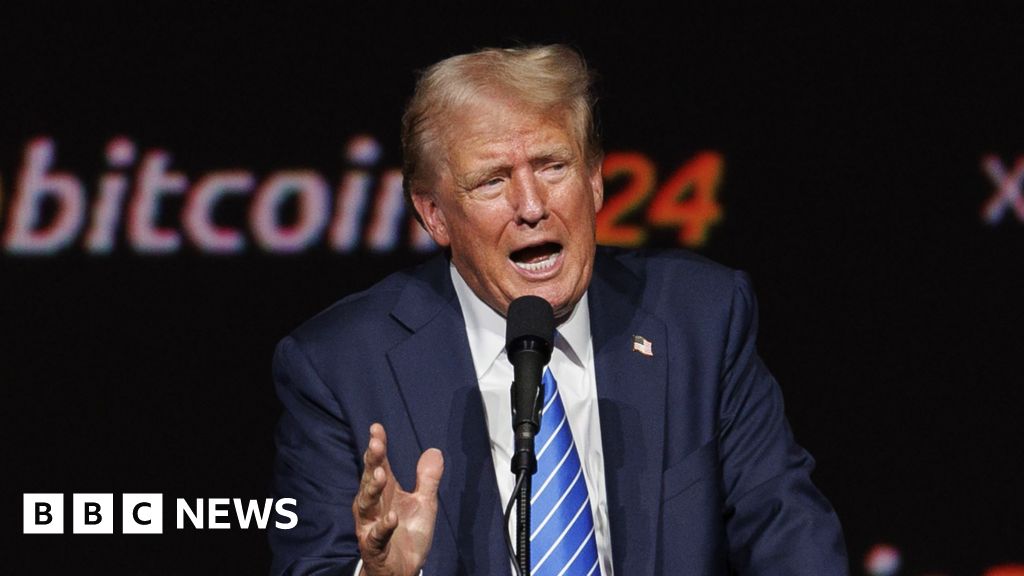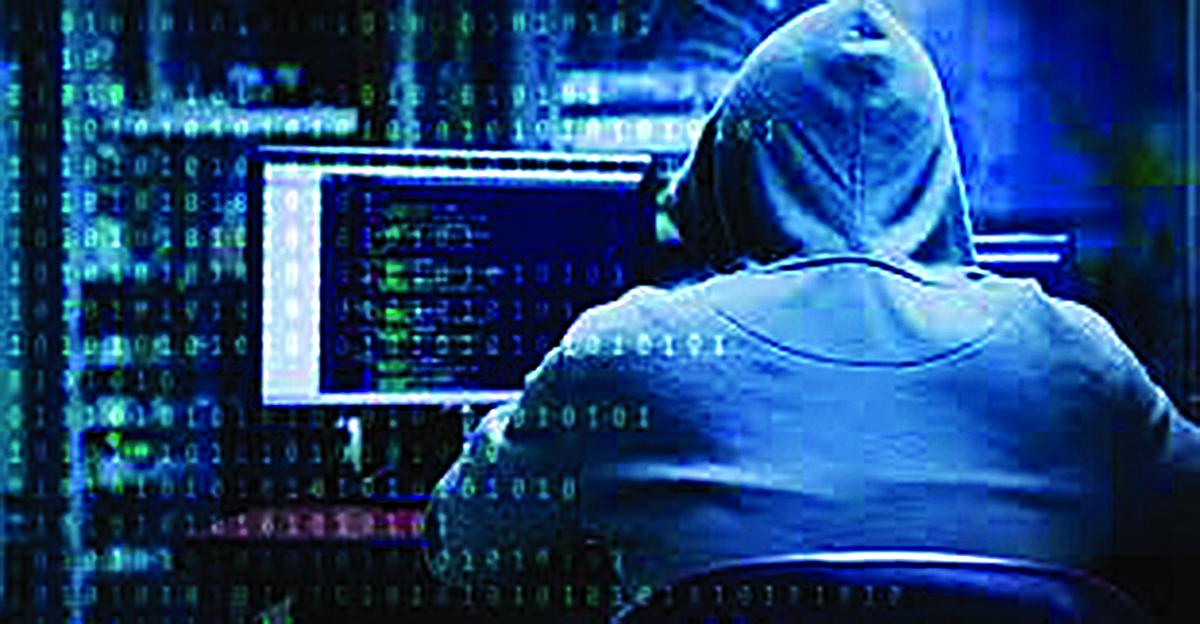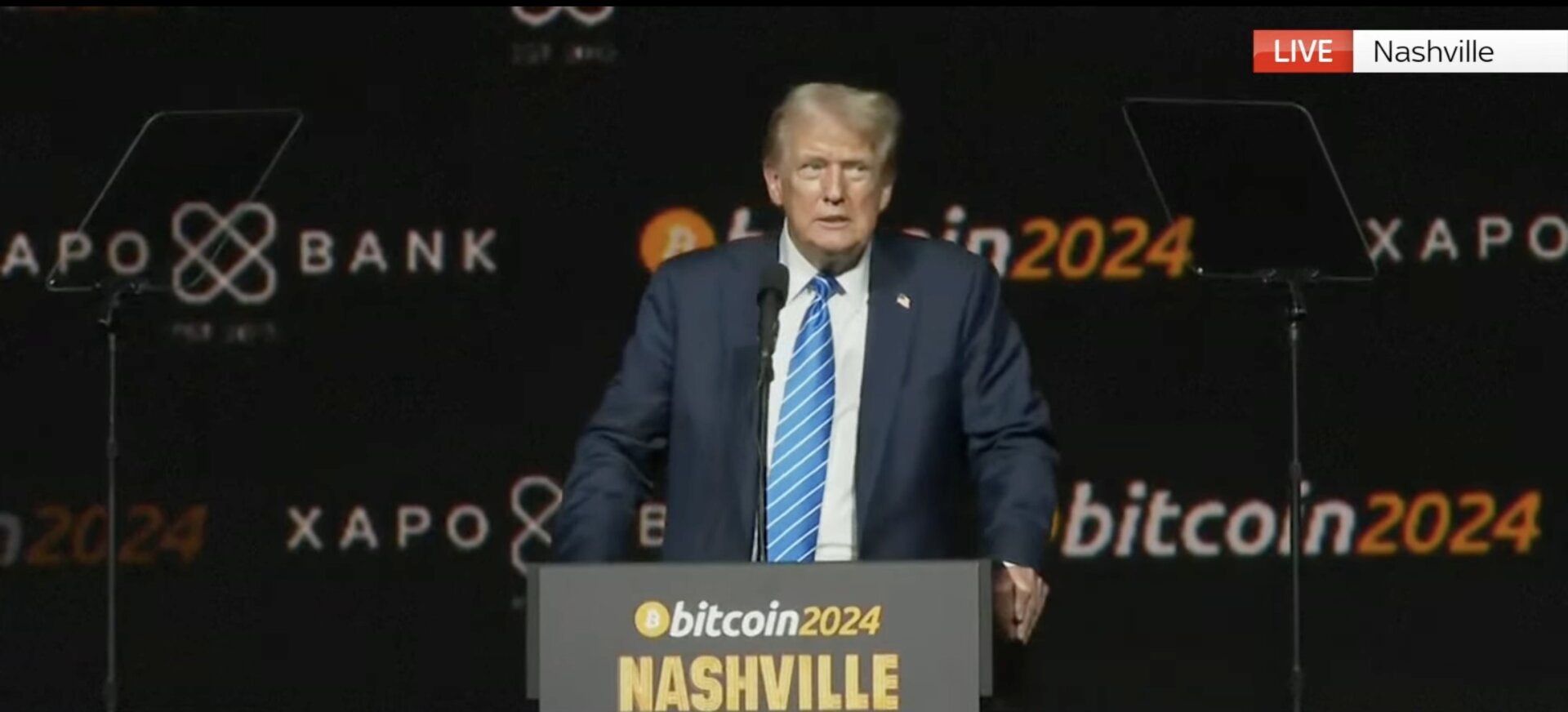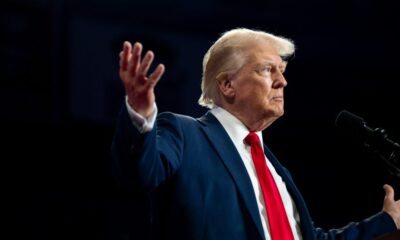Tech
CTED Technology Sessions: Highlights on “Threats and Opportunities Related to New Payment Technologies and Fundraising Methods” | Security Council
Terrorists are neutral and adaptable to technology. As technology rapidly evolves, terrorists are increasingly abusing financial services facilitated by new and emerging technologies, including in response to increased monitoring and controls in the formal financial system. The scope and types of abuse vary greatly depending on the regional and economic context, and the terrorists’ stated objectives in terms of sources and methods of financing.
In its resolution 2462 (2019)The United Nations Security Council recognized that innovations in financial technologies, products and services can offer significant economic opportunities but also pose the risk of being misused, including for terrorist financing. In this regard, it reiterated its concern about the continued use by terrorists and their supporters of information and communications technologies to finance terrorist acts, and further expressed grave concern that terrorists and terrorist groups raise funds through, inter alia, crowdfunding and may move and transfer funds through the use of emerging payment methods, such as prepaid cards and mobile payments or virtual assets.
It therefore called on all Member States to assess and address the potential risks associated with virtual assets and, where appropriate, the risks of new financial instruments, including but not limited to crowdfunding platforms, which could be abused for terrorist financing purposes and to take measures to ensure that providers of such assets are subject to anti-money laundering (AML) and counter-terrorist financing (CFT) obligations. It also called for the full use of new and emerging financial technologies and regulations to enhance financial inclusion and contribute to the effective implementation of AML/CFT measures.
During the CTED-led technical sessions held in virtual format on 23 and 26 September 2022 in view of the special meeting of the Counter-Terrorism Committee on counter the use of new and emerging technologies for terrorist purposesMore than 20 experts from international and regional organizations, national authorities, civil society, academia and the private sector discussed:
- global and regional trends in the misuse of new payment technologies and fundraising methods for terrorist financing purposes; and
2. the opportunities offered by new technologies to make CFT responses more effective.
Examples of methods of raising funds for terrorist purposes include the abuse of social media services, including social networking services (used to solicit donations via traditional payment methods), content hosting services, online merchandise sales (with a clear shift from fiat payments to cryptocurrencies), and crowdfunding platforms (which often disguise the use of funds for charitable or humanitarian causes). Despite repeated public warnings about the misuse of social media and crowdfunding platforms by terrorists for financial activities, neither the enforcement of terms of service nor internal monitoring mechanisms based on these provisions appear to have improved significantly on these global platforms. There is a continuing need to address fundraising loopholes, such as the “super chat” feature or the advertising and monetization of brands in conjunction with terrorist content.
While cash and Hawala transfers remain the most prevalent methods used by terrorists to store and move money, there is also an increase in their use in conjunction with new payment methods. Terrorists have also been known to abuse mobile payment systems, virtual assets (including Bitcoin, lesser-known cryptocurrencies, and privacy coins), and online exchanges and wallets. Blockchain, cryptocurrencies, and crowdfunding sometimes present a more complex money trail for financial investigators to follow. Some of these products can enable anonymous cross-border peer-to-peer fund transfers, which can occur without the involvement of a virtual asset service provider (VASP). These risks are compounded by the growing number and types of VASPs and the persistent gaps in their regulation and oversight. Implementing AML/CFT measures is becoming more difficult with the growing use and materiality of decentralized finance (DeFi), non-fungible tokens (NFTs), and unhosted wallets.
Regulation is further complicated by the global nature of the cryptocurrency ecosystem. Companies providing digital finance services in a given country may not be domiciled or registered in that country, so global regulation is needed, but it must be implemented in a coordinated manner. This has been described by the Financial Action Task Force (FATF) as a “dawn problem” with respect to the impact of inconsistent implementation of the “travel rule” across jurisdictions, resulting in some VASPs interacting with foreign counterparties without similar requirements.
In recent years, some countries have begun to regulate the virtual assets sector, while others have banned virtual assets altogether (however, issuing a ban statement is not always followed by implementation). There is also some evidence of increasing maturity in both the analytical tools needed to identify suspicious activity involving blockchain transactions and the regulatory frameworks that require reporting to authorities. However, so far, most countries have not begun to regulate the sector. These gaps in the global regulatory system have created significant loopholes that criminals and terrorists can abuse. Of the 98 jurisdictions that responded to the FATF survey in March 2022, only 29 have passed relevant laws, and a small subset of these jurisdictions have begun to enforce them.
New technologies also have the potential to make AML/CFT measures in both the public and private sectors faster, cheaper and more effective. When used responsibly, technology can facilitate data collection, processing and analysis and help actors identify and manage terrorist financing risks more effectively and closer to real time. Collaborative analytics can help financial institutions better understand, assess and mitigate money laundering and terrorist financing risks. They can also help prevent criminals from exploiting information gaps by pooling data from multiple national and international financial institutions. Available technology and data, including blockchain intelligence, can be used to map illicit financial networks and track and report suspicious activity.
Strong public-private partnerships (PPPs) are essential to share information, understand evolving trends, increase knowledge and expertise of relevant experts, and strengthen the integrity of the financial sector. Such partnerships should include dialogue between financial intelligence units and the relevant FinTech sector regarding data sharing as part of suspicious activity reporting. With regard to social media, such PPPs help ensure that social media companies’ CTF efforts are informed and effective. PPPs have also served as a useful forum for authorities to disseminate regular guidance to the private sector. Partnerships with the private sector also present opportunities to foster meaningful civil society engagement, aimed at ensuring that such partnerships do not infringe on financial inclusion and civic space.
Discussions also frequently highlighted the need to ensure that unintended consequences and impacts on human rights and legitimate activities, including non-profit organizations and civil society, are adequately protected. A multi-stakeholder approach involving relevant national authorities, the private sector, civil society and academia is essential at all stages, from assessing risks and threats, to developing response measures, to conducting reviews and impact assessments.
Helpful resources on the topic covered during the sessions include:
- S/2020/493
- Global inquiry into the implementation of Security Council resolution 1373 (2001) and other relevant resolutions by Member States (2021)
- FATF focuses on virtual activities
- Digital Transformation of AML/CFT
- Twenty-ninth report of the Sanctions Analytical Support and Monitoring Team pursuant to resolutions 1526 (2004) and 2253 (2015), submitted to the Security Council Committee pursuant to resolutions 1267 (1999), 1989 (2011) and 2253 (2015) relating to the Islamic State in Iraq and the Levant (Da’esh), Al-Qaida and associated individuals, groups, undertakings and entities, February 2022
- Joint Asia-Pacific Group on Money Laundering (APG) and FATF for the Middle East and North Africa (MENAFATF) Social Media and Terrorist Financing Report TypesJanuary 2019
- Report of the European Centre for the Reorganisation of Non-Profit Law (ECNL) “New Technologies, Perpetual Challenges: How Emerging Financial Compliance Technologies Are Impacting the Nonprofit Sector”, June 2022
- Global Counter-Terrorism Forum (GCTF) “Memorandum of good practices for the implementation of CFT measures safeguarding civic space” (2021)
- “Little by little: the impact of new technologies on terrorist financing risks”, Royal United Services Institute for Defence and Security Studies (RUSI), April 2022
- Observations on the combined use of cryptocurrencies and hawala for terrorist financing, Ms. Jessica Davis, President, Insight Threat Intelligence, September 2022
- Global Research Network on Terrorism and Technology: Paper No. 10 “Social Media and Terrorist Financing: What Are the Vulnerabilities and How Could the Public and Private Sectors Work Better Together?”, Royal United Services Institute for Defence and Security Studies (RUSI), August 2019
- Observations on “Trends in the financing of so-called terrorism motivated by xenophobia, racism and other forms of intolerance through the misuse of new technologies”, Dr. Hans-Jakob Schindler, Senior Director, Counter Extremism Project, September 2022
- Observations on regulatory approaches to cryptocurrency adopted by sub-Saharan African countriesMs. Tracey Durner Director of Financial Integrity and Inclusion, Global Center on Cooperative Security, September 2022
More information here:
https://tinyurl.com/UNCTCEmergingTech
Italian: https://tinyurl.com/CTEDTechSessions
To stay up to date with updates on the special meeting via social media, follow the hashtag #UNCTCEmergingTech and CTED:
Facebook: www.facebook.com/UnitedNationsCTED
Italian: Italian: www.instagram.com/un_cted/
On Twitter: Italian: https://twitter.com/UN_CTED
Tech
The Information Hires Peterson to Cover Tech, Finance, Cryptocurrency

My life is nice
Tech news site The Information has hired Business Insider actress to cover technology, finance and cryptocurrencies.
She was part of Business Insider’s investigative team. She was also previously a corporate technology reporter and a technology deals reporter.
Peterson has been with Business Insider since June 2017 and is based in the San Francisco office.
She previously worked for Folio as an associate editor. She holds a bachelor’s degree from the University of California-Davis and a master’s degree from New York University.
Chris Roush
Chris Roush is the former dean of the School of Communications at Quinnipiac University in Hamden, Connecticut. Previously, he was the Walter E. Hussman Sr. Distinguished Professor of Business Journalism at UNC-Chapel Hill. He is a former business reporter for Bloomberg News, Businessweek, The Atlanta Journal-Constitution, The Tampa Tribune, and the Sarasota Herald-Tribune. He is the author of the leading business journalism textbook, Show Me the Money: Writing Business and Economics Stories for Mass Communication, and of Thinking Things Over, a biography of former Wall Street Journal editor Vermont Royster.
Tech
Trump Courts Crypto Industry Votes, Campaign Donations

About the article
- Author, Brandon Livesay
- Role, BBC News
-
July 27, 2024
Donald Trump said at one of the biggest cryptocurrency events of the year that if he is re-elected president, he will fire the chairman of the U.S. Securities and Exchange Commission (SEC) on his first day.
On Saturday, Trump was the keynote speaker at Bitcoin 2024, a gathering of industry heavyweights in Nashville, Tennessee.
The Republican presidential candidate used the event to woo voters and encourage the tech community to donate to his campaign.
Cryptocurrencies have emerged as a political battleground for Republicans, with Trump saying that the Democratic Party and Vice President Kamala Harris were “against cryptocurrencies.”
The crowd was at its most animated when Trump declared, “On day one, I will fire Gary Gensler,” the SEC chairman appointed by now-President Joe Biden. The crowd applauded loudly and began chanting “Trump” at this statement.
SEC files charges against ‘Cryptocurrency King’ Sam Bankman-Frittosentenced to 25 years for stealing billions of dollars from customers of his cryptocurrency exchange FTX.
Speaking for about 45 minutes, Trump outlined some of his ideas for the industry if he wins the November election. He said he would make the United States the crypto capital of the world. His support for the sector is a 180-degree reversal from his comments in 2021, when he told Fox Business he saw Bitcoin as a “scam” that influence the value of the US dollar.
Trump told the crowd at the event that he would retain 100% of the Bitcoin currently owned or acquired by the U.S. government, adding that it would be a “national stockpile of Bitcoin.”
The former president also said he would “immediately appoint a presidential advisory council on Bitcoin and cryptocurrencies.”
He talked about the power needed to mine cryptocurrencies. “It takes a lot of electricity,” he said, adding that he would build power plants “to do that” and that it would “use fossil fuels.”
In recent months, some tech leaders have seen growing support for Trump’s presidential campaign. Tesla founder Elon Musk, who is the world’s richest person, has backed Trump. And cryptocurrency moguls the Winklevoss twins, who attended his speech on Saturday, have also come out in support.
Trump noted that his campaign accepts cryptocurrency donations, saying that in the two months since allowing cryptocurrency transactions, he has received $25 million (£20 million) in donations. However, he did not say how much of the payments came from cryptocurrency.
Trump used his speech to frame cryptocurrency regulation as a partisan issue, saying the Biden administration was “anti-crypto.”
Several Republican lawmakers also attended Trump’s speech, including Senators Tim Scott and Tommy Tuberville. Former Republican presidential candidate and Trump ally Vivek Ramaswamy was also in attendance.
The event was also attended by independent presidential candidate Robert F Kennedy Jr. and Democratic Party congressmen Wiley Nickel and Ro Khanna.
Earlier, during Bitcoin 2024, Democratic Congressman Nickel said that Kamala Harris was taking a “forward-thinking approach to digital assets and blockchain technology.”
Tech
WazirX Crypto Exchange Hack and Its Bounty Program: What Does It Mean for Crypto Investors in India?

On July 18, India Cryptocurrency exchange WazirX has been hit by a cyber attack which resulted in the loss of over $230 million worth of digital assets from one of its wallets. The exchange responded by suspending regular trading and reporting the incident to Indian authorities and other cryptocurrency exchanges. The company also launched two reward programs for ethical hackers who can help the exchange trace, freeze, and recover stolen funds.
WazirX said there was a cyberattack on a multi-signature wallet operated through a digital asset custodian service known as Liminal. Multi-signature wallets have a built-in security feature that requires multiple parties to sign transactions.
“The impact of the cyberattack is over $230 million on our clients’ digital assets,” WazirX said in a blog post, adding that INR funds were not affected. The company has firmly denied that WazirX itself was hacked and has brushed aside rumors that it was tricked by a phishing attack.
The exchange also noted that it was “certain” that its hardware keys had not been compromised, adding that an external forensic team would be tasked with investigating the matter further.
But Liminal, after completing its investigation, said: “It is clear that the genesis of this hack stems from three devices compromised by WazirX.”
Meanwhile, WazirX founder and CEO Nischal Shetty said that the attack would have been possible only if there were four points of failure in the digital signature process.
Who is behind the cyber attack?
WazirX has not yet disclosed the suspected parties or perpetrators responsible for the hack. However, news reports have emerged that North Korean hackers were responsible for the incident.
On-chain analytics and other information indicate “that this attack was perpetrated by hackers affiliated with North Korea,” blockchain analytics platform Elliptic said.
In response to The Hindu’s questions to WazirX about the North Korean hackers, cryptocurrency exchange WazirX directed us to its blog and said it was working with law enforcement to investigate whether a known malicious group was behind the attack.
“This incident affected the Ethereum multisig wallet, which consists of ETH and ERC20 tokens. Other blockchain funds are not affected,” WazirX said in its official blog, specifying that approximately 45% (according to preliminary work) of cryptocurrencies were affected by the attack.
The company largely placed the blame on the process of securing Ethereum multisig wallets and said that the vulnerability was not unique to WazirX.
How important is WazirX in the cryptocurrency industry?
WazirX calls itself India’s largest cryptocurrency exchange by volume. As of June 10, it reported total holdings of ₹4,203.88 Crores, or 503.64 million USDT. Tether [USDT] It is a stablecoin, that is, a cryptocurrency pegged to the value of the US dollar, but it is not an official currency of the United States.
When The Hindu tried to access WazirX Public and Real-Time Reserve Proof After the hack, we were greeted with a notice that the page was under maintenance.
WazirX has received both positive and negative reviews in India. The Enforcement Directorate froze the exchange’s assets in 2022, criticizing its operating procedures and lax Know-Your-Customer (KYC) and Anti-Money Laundering (AML) regulations.
“By encouraging obscurity and adopting lax AML norms, it has actively assisted around 16 accused fintech companies in laundering proceeds of crime using the cryptocurrency route. Accordingly, equivalent movable assets amounting to Rs 64.67 Crore in possession of WazirX have been frozen under the PMLA, 2002,” the ED said in a statement.
What will happen to WazirX assets?
It is unlikely that the stolen WazirX assets will be fully recovered anytime soon. This is due to the very nature of cryptocurrency, where assets can be easily mixed, transferred, converted, and sent to anonymous wallets. The chances of asset recovery are even slimmer if it is confirmed that North Korean hackers are behind the incident.
CEO Shetty said on X on July 22 that “small” portions of the stolen funds had been frozen, but declined to provide further details. He added that the majority of the funds had not been moved from the attacker’s wallet.
In recent years, North Korean hackers have stolen billions of dollars in cryptocurrency, aiming to circumvent various financial and economic sanctions.
WazirX is currently working to resume normal operations and has planned to launch an online survey to decide how to resume trading on the platform.
While the Indian exchange has defended its security practices and highlighted the challenges facing the cryptocurrency industry as a whole, savvy crypto traders will be looking for action plans and accountability, rather than emotional reassurance.
What does your rewards program consist of?
WazirX has announced two bounty programs: one to gain more information about stolen funds, and the other to recover them. Both programs are open to everyone except WazirX employees and their immediate family members.
Under the first program, WaxirX will reward up to $10,000 to anyone who can provide the exchange with information that can help freeze the funds. If the bounty hunter is unable to freeze the funds on their own, they should work with WazirX by providing enough evidence to facilitate the process.
But “if the participant fails to freeze and/or does not cooperate with WazirX to facilitate the freezing of funds, then the participant will not be entitled to any rewards,” the exchange said.
The second program, called White Hat Recovery, is aimed at recovering funds. Participants are offered 10% of the amount recovered as a white hat incentive.
“This reward will be paid only after and subject to the successful receipt of the stolen amount by WazirX. The above rewards will be payable in USDT or in the form of recovered funds at the sole discretion of WazirX,” the exchange noted.
The bounty programs are expected to last for the next three months.
This is a Premium article available exclusively to our subscribers. Read over 250 premium articles each month You have exhausted your limit of free articles. Support quality journalism. You have exhausted your limit of free articles. Support quality journalism. X You have read {{data.cm.views}} of {{data.cm.maxViews}} free articles. X This is your last free article.
Tech
Trump Vows to Make US ‘Crypto Capital of the Planet and Bitcoin Superpower’

Speaking to a crowd of supporters at the Bitcoin 2024 Conference in Nashville, Tennessee, former President and Republican candidate Donald Trump said that if elected, he would make the United States the “crypto capital of the planet and a Bitcoin superpower.”
Trump added that he would “appoint a Presidential Advisory Council on Bitcoin and Cryptocurrencies,” which would have 100 days to “design transparent regulatory guidance that will benefit the entire industry.”
Trump has publicly opposed cryptocurrencies until recently. His latest statements serve as a rallying cry for a tech industry that has long called for more flexible regulatory oversight.
Shortly after taking the stage, Trump spent several minutes naming some of the conference attendees, at one point describing Winklevoss Twins Cameron and Tyler as “male role models with big, beautiful brains.” The former president has continued to speak out against electric car mandates and called for more fossil-fuel burning power plants.
Trump also said he would order the United States to withhold all Bitcoin it currently owns “in the future.” The U.S. government reportedly holds billions of dollars in Bitcoin.
About three years ago, Trump called Bitcoin “a fraud“that is “competing against the dollar.” In February 2024, the former president said that establishing a central bank digital currency would represent a “dangerous threat to freedom.” Yet, in May, Trump declared that he was “good with [crypto]“, adding, “if you’re pro-cryptocurrency you’d better vote for Trump.” That same month, he said he would commute with the Silk Road founder Ross Ulbricht’s Sentencingand his campaign said it would accept cryptocurrency donations.
Recent comments from Trump and independent presidential candidate Robert F. Kennedy Jr. have helped make cryptocurrency regulation a major political issue in the 2024 U.S. presidential election. This comes as the SEC intensifies its scrutiny of the cryptocurrency industry. SEC Chairman Gary Gensler, appointed by President Joe Biden, called the activity “full of fraud, scams, bankruptcies and money laundering.” Trump drew applause at the conference after promising to “fire” Gensler. (U.S. presidents have the power to appoint the heads of many federal commissions, including the SEC.)
With Biden out of the raceVice President Kamala Harris’s campaign advisers have He is said to have contacted to cryptocurrency leaders in an effort to “reset” relations with the industry. Harris’s campaign has not yet said whether her stance on the industry differs from Biden’s.
-

 Altcoins12 months ago
Altcoins12 months agoTop Solana-Based Altcoins Stack Up As Market Turns Bullish!
-

 Altcoins12 months ago
Altcoins12 months agoAltcoins Are Severely Undervalued, Awaiting Ethereum Move | Flash News Detail
-

 News12 months ago
News12 months agoAI meme Raboo and crypto newbie ZRO
-

 Altcoins12 months ago
Altcoins12 months agoAltcoins Correct Amid ETH Decline, Grayscale Outflows | Flash News Detail
-

 DeFi12 months ago
DeFi12 months agoIf You Missed BONK and PEPE This Year, This Viral New Crypto Might Be Your Salvation
-

 Tech12 months ago
Tech12 months agoLogan Paul Offers Partial Refund for Failed CryptoZoo Game
-

 News12 months ago
News12 months agoDonald Trump vows to make the US a ‘Bitcoin superpower’ and create a national stockpile of tokens
-

 DeFi12 months ago
DeFi12 months agoIf You Missed BONK and PEPE This Year, This Viral New Crypto Might Be Your Salvation
-

 Tech1 year ago
Tech1 year agoThe Latest Tech News in Crypto and Blockchain
-

 Altcoins12 months ago
Altcoins12 months agoAltcoins set to make new crypto millionaires during summer rally
-

 DeFi1 year ago
DeFi1 year ago🪂EigenLayer Airdrop Claims Go Live
-

 Videos1 year ago
Videos1 year agoLIVE FOMC 🚨 Could be CATASTROPHIC for Altcoins!





